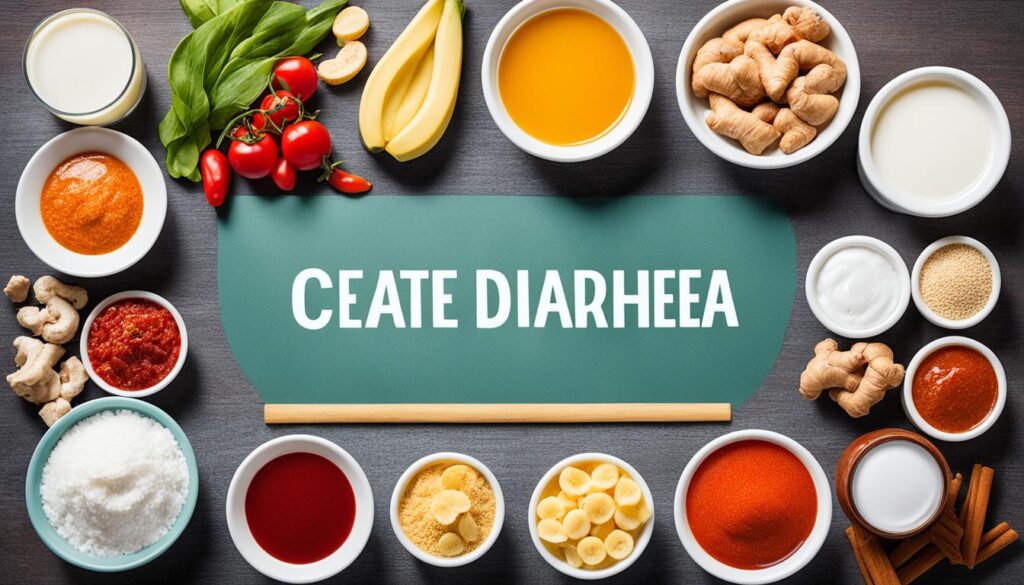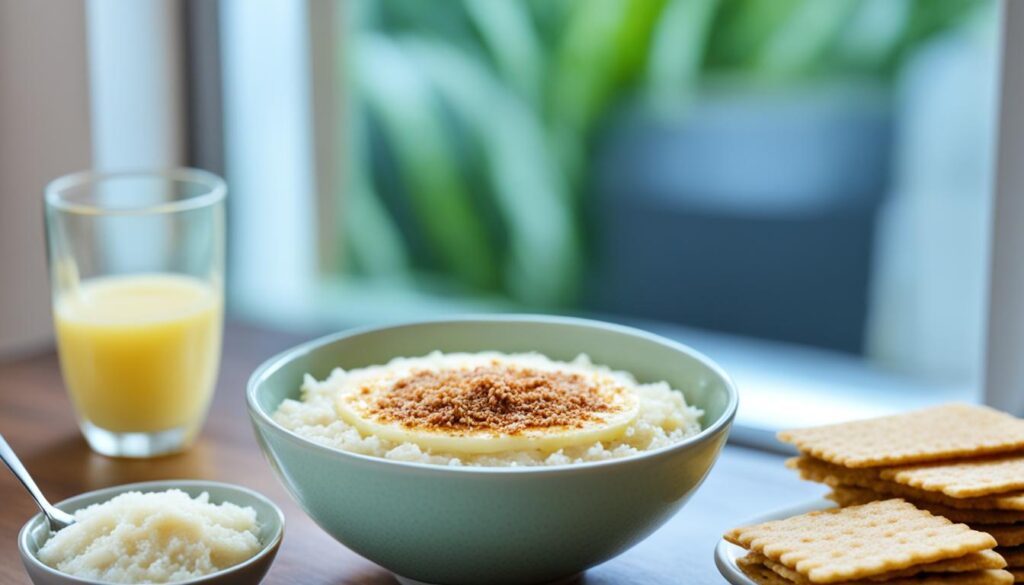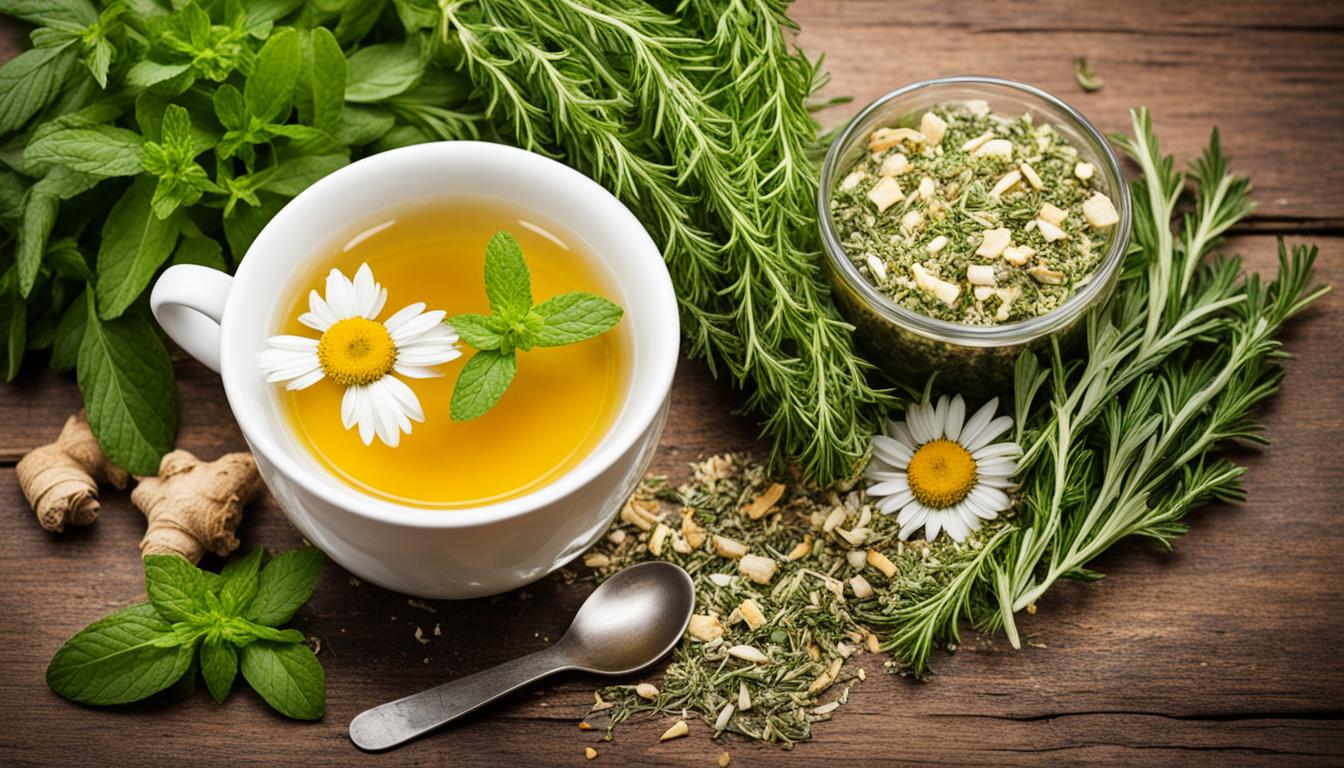Diarrhea is a common digestive problem that can be uncomfortable and disruptive. Fortunately, there are many home remedies that can provide natural relief for diarrhea. In this article, we will explore 10 effective home remedies for diarrhea that you can try at home. These remedies include dietary changes, herbal remedies, and holistic approaches to managing digestive upset. By incorporating these remedies into your routine, you can find quick and effective relief from diarrhea.
Watch Video: Practical Medicine for Every Household
Key Takeaways:
- Home remedies for diarrhea can provide natural relief for digestive upset.
- Dietary changes, such as following a bland diet, can help alleviate diarrhea symptoms.
- Incorporating fermented foods and probiotics into your diet can regulate the digestive system.
- Avoid trigger foods that can worsen diarrhea, such as greasy and high-fiber foods.
- Rest and staying hydrated are essential for managing diarrhea.
Stay Hydrated to Replace Lost Fluids
One of the most important aspects of managing diarrhea is staying hydrated. Diarrhea can lead to fluid loss and dehydration, so it’s crucial to replenish fluids. Drink plenty of water throughout the day and consider using an oral rehydration solution to replace electrolytes. Consuming eight to ten glasses of water daily can help you stay hydrated and alleviate symptoms of diarrhea.
Severe diarrhea can cause dehydration, which is why it’s important to drink sufficient fluids. Fluid loss can lead to electrolyte imbalances and further health complications. Plain water is a good choice, but you can also include other hydrating beverages like herbal teas, clear broths, and diluted fruit juices. Avoid caffeinated and alcoholic beverages as they can worsen dehydration.
| Signs of Dehydration | Actions to Take |
|---|---|
| Dry mouth and throat | Take small sips of water frequently |
| No tears when crying or reduced urine output | Incorporate oral rehydration solutions |
| Dark-colored urine or dizziness | Consult a healthcare professional |
Remember to prioritize staying hydrated, especially if you’re experiencing frequent watery stools. Listen to your body’s thirst cues and drink fluids accordingly. By ensuring adequate hydration, you can help alleviate symptoms of diarrhea and promote quicker recovery.
“Fluid replacement is essential when dealing with diarrhea. It helps restore the body’s water balance and prevent dehydration.”
Follow a Bland Diet
When experiencing diarrhea, it’s important to follow a bland diet that is easy on the stomach. The BRAT diet is a popular and effective approach to managing diarrhea. It consists of consuming bananas, rice, applesauce, and toast, which are all gentle on the stomach and help absorb water. Other foods that can be included in the BRAT diet are broth, clear soup, potatoes, and saltine crackers. These foods are low in fiber and starchy, which can help bulk up the stool and alleviate symptoms of diarrhea.
By following a bland diet, you can provide relief to your upset stomach and aid in the recovery process. The BRAT diet has been a go-to option for many individuals experiencing diarrhea due to its simplicity and gentle nature on the digestive system.
The BRAT Diet
The BRAT diet, consisting of bananas, rice, applesauce, and toast, is a recommended dietary option for individuals with diarrhea. Here is a breakdown of the foods included in the BRAT diet:
| Food | Description |
|---|---|
| Bananas | Gentle on the stomach and rich in pectin, which helps absorb excess water and promote firmer stools. |
| Rice | Easily digestible and helps bind the stool together. |
| Applesauce | Provides soothing relief and contains pectin for stool firmness. |
| Toast | Plain, white bread that is easy to digest and helps bulk up the stool. |
| Broth, Clear Soup, Potatoes, Saltine Crackers | Additional foods that are low in fiber and contribute to the blandness of the diet, helping alleviate symptoms of diarrhea. |
When following the BRAT diet, it’s important to avoid greasy or spicy foods, dairy products, and high-fiber foods, as these can further irritate the digestive system. It’s best to stick to simple, easy-to-digest foods that are gentle on the stomach.
Incorporate Fermented Foods
Fermented foods can be beneficial for resolving diarrhea symptoms. They contain probiotics, which are beneficial bacteria that can help restore the balance of gut flora. Probiotics play a crucial role in promoting healthy digestion and overall gut health.
Here are some examples of fermented foods that you can incorporate into your diet:
- Kefir
- Kimchi
- Kombucha
- Miso
- Sauerkraut
- Sourdough bread
- Tempeh
These foods are not only delicious but also contain a rich variety of probiotic strains that can help regulate the digestive system and alleviate diarrhea symptoms.
In addition to fermented foods, certain yogurts also contain probiotics that can provide similar benefits. Look for yogurts that specifically mention the presence of live and active cultures to ensure you are getting the most out of these probiotic-rich foods.
Benefits of Fermented Foods for Diarrhea
Fermented foods have been shown to offer several benefits when it comes to managing diarrhea:
- Probiotics in fermented foods can help restore the balance of gut bacteria, which may be disrupted during episodes of diarrhea.
- These foods contain compounds that can promote proper digestion and improve overall gut health.
- Consuming fermented foods may help reduce inflammation in the digestive system and alleviate symptoms of diarrhea.
- Probiotics in fermented foods can support a strong immune system and help prevent further digestive issues.
By incorporating fermented foods into your regular diet, you can harness the power of probiotics to promote healthy digestion and find relief from diarrhea.
Avoid Trigger Foods
Certain foods can aggravate diarrhea and worsen symptoms. It’s important to avoid these trigger foods when experiencing diarrhea. Greasy, fried foods, high-fat dairy products, fruits like berries and prunes, and vegetables such as beans, broccoli, corn, green leafy vegetables, peas, and peppers are all examples of foods that can irritate the stomach and worsen diarrhea. It’s also advised to avoid alcohol and caffeine, as they can increase intestinal activity and exacerbate diarrhea symptoms.
| Trigger Foods to Avoid | Reason for Avoidance |
|---|---|
| Greasy, fried foods | Difficult to digest and can worsen digestive upset |
| High-fat dairy products | Can stimulate intestinal activity and aggravate diarrhea |
| Berries and prunes | High in fiber, which can further irritate the digestive system |
| Beans, broccoli, corn, green leafy vegetables, peas, and peppers | Can be difficult to digest and may worsen diarrhea |
| Alcohol and caffeine | Increase intestinal activity and can exacerbate diarrhea symptoms |

By avoiding these trigger foods, you can help alleviate symptoms and promote better digestive health during a bout of diarrhea. It’s important to listen to your body and make dietary changes that support your recovery. Incorporating a balanced and gentle diet can contribute to a quicker resolution of diarrhea.
Rest and Avoid Strenuous Exercise
When experiencing a bout of diarrhea, it is important to prioritize rest and avoid strenuous exercise. Your body needs time to recover and restore balance, and engaging in intense physical activity can exacerbate symptoms. Exercising while having diarrhea can lead to fluid loss, further worsening the condition. While it is generally acceptable to engage in light daily activities, it is crucial not to overexert yourself.
Watch Video: Practical Medicine for Every Household
Why Rest is Important
Resting allows your body to divert energy and resources to healing and combating the underlying cause of your diarrhea. It also helps reduce strain on the digestive system, allowing it to return to normal functioning more quickly.
“Rest is an essential component of the healing process when dealing with diarrhea. By giving your body the rest it needs, you allow it to focus on recovering and restoring balance.”
While the overall duration of rest required varies from person to person, it is advisable to listen to your body’s needs and adjust your activities accordingly.
The Role of Exercise
While moderate exercise is generally beneficial for overall health and well-being, low-intensity activities are recommended during episodes of diarrhea. It is important to avoid exercises that may strain the abdominal muscles or increase the risk of dehydration.
Here are a few exercise tips to consider:
- Engage in gentle stretching exercises to relieve muscle tension and discomfort.
- Practice relaxation techniques, such as deep breathing or yoga, to promote a sense of calm and alleviate stress.
- Take short walks in fresh air and natural surroundings to boost your mood and promote gentle movement.
- Avoid high-impact activities or exercises that place excessive strain on the abdominal area.
Remember, it is important to prioritize rest and recovery during this time. If you experience persistent or severe symptoms, it is recommended to consult with a healthcare provider for a proper diagnosis and guidance.
Try Soothing Herbal Teas
Herbal teas can provide soothing relief for diarrhea symptoms. Chamomile tea is often used to alleviate upset stomach and may help with diarrhea. It has calming properties that can help soothe the digestive system. Another herbal tea that may be beneficial is lemongrass tea, which has been shown to lessen the severity of diarrhea caused by viral infections. Ginger tea is also known for its stomach-soothing properties. However, it’s important to note that while these teas may provide relief, individual responses may vary.

The Benefits of Herbal Teas for Diarrhea
Herbal teas have long been used as natural remedies for various ailments, including digestive issues like diarrhea. These teas are made from herbs and plants that contain compounds with therapeutic properties. When consumed as a beverage, they can have a soothing and calming effect on the gastrointestinal system. Here are some key benefits of herbal teas for diarrhea:
- Calming properties that help soothe the digestive system
- Reduction of inflammation in the intestines
- Anti-microbial effects that can combat viral or bacterial causes of diarrhea
- Promotion of healthy bowel movements and digestion
- Hydration support to prevent dehydration associated with diarrhea
Types of Herbal Teas for Diarrhea
There are several herbal teas that have been traditionally used to manage diarrhea symptoms. Here are some common ones:
- Chamomile tea: Known for its calming properties, chamomile tea can help soothe an upset stomach and alleviate diarrhea.
- Lemongrass tea: Lemongrass has been shown to have antiviral properties and may help reduce the severity of diarrhea caused by viral infections.
- Ginger tea: Ginger has long been used to alleviate digestive discomfort, including diarrhea. It can help reduce inflammation and promote healthy digestion.
When preparing herbal teas for diarrhea relief, it’s important to steep the herbs in hot water for at least 5-10 minutes to extract the beneficial compounds. It’s also a good idea to drink the tea warm for maximum soothing effect. However, if you have any existing medical conditions or are taking medications, it’s always best to consult with a healthcare professional before incorporating herbal teas into your routine.
Using Herbal Teas Safely and Effectively
While herbal teas can provide relief for diarrhea symptoms, it’s essential to use them safely and effectively. Here are a few tips to keep in mind:
- Choose high-quality organic teas to ensure purity and minimize the risk of contaminants.
- Follow the recommended steeping times and temperatures for each herbal tea.
- Avoid adding sweeteners or milk to herbal teas, as these may worsen diarrhea symptoms.
- Start with small amounts of herbal tea and gradually increase as tolerated.
- If you experience any adverse effects or if your symptoms worsen, discontinue use and consult a healthcare professional.
By incorporating soothing herbal teas into your routine, you can find natural relief for diarrhea and promote better digestive health.
Over-the-Counter Medications
When it comes to managing diarrhea, over-the-counter medications can provide effective relief. Two commonly used medications for diarrhea are Imodium (loperamide) and Pepto-Bismol (bismuth subsalicylate).
Imodium for Diarrhea
Imodium is an over-the-counter medication that works by slowing down the movement of the intestines, reducing diarrhea. It helps restore balance to the digestive system and provides relief from symptoms such as loose stools and frequent bowel movements. It’s important to follow the instructions on the packaging and not exceed the recommended dosage.
Pepto-Bismol for Diarrhea
Pepto-Bismol is another popular over-the-counter remedy for diarrhea and upset stomach. It contains bismuth subsalicylate, which has anti-inflammatory properties and helps soothe the digestive system. Pepto-Bismol can alleviate symptoms of diarrhea, such as abdominal discomfort and loose stools. It’s important to read and follow the instructions on the packaging carefully.
While these medications can provide relief from diarrhea, it’s essential to consult a healthcare provider if your symptoms are severe or persist for an extended period. They can help determine the underlying cause of your diarrhea and provide appropriate guidance and treatment.
Keeping these over-the-counter medications on hand can be beneficial when you need quick relief from diarrhea. However, it’s important to remember that these medications are intended for short-term use and should not be used as a long-term solution. If your symptoms persist or worsen, it’s best to consult a healthcare provider for further evaluation and advice.
Harness the Power of Probiotics
Probiotics are beneficial bacteria that can help restore the balance of gut flora and alleviate diarrhea. Including probiotics in your diet or taking supplements can help regulate the digestive system and promote healthy bowel movements.
Fermented foods are a great natural source of probiotics. They can be easily incorporated into your diet to support digestive health. Some examples of fermented foods that are rich in probiotics include:
- Yogurt
- Kefir
- Miso
- Sauerkraut
- Pickles
These foods contain live cultures of beneficial bacteria, such as Lactobacillus and Bifidobacterium, which have been shown to be effective in managing diarrhea.
In addition to fermented foods, probiotic supplements are also available over-the-counter. They provide a convenient and concentrated dose of beneficial bacteria. When choosing a probiotic supplement, look for one that contains a variety of strains and has a high number of colony-forming units (CFUs).
By adding probiotics to your diet, either through fermented foods or supplements, you can help restore the natural balance of bacteria in your gut and experience relief from diarrhea.

Benefits of Probiotics for Diarrhea:
Probiotics offer several benefits when it comes to managing diarrhea:
- Restoring Gut Flora: Probiotics help replenish the beneficial bacteria that may be depleted during episodes of diarrhea, restoring the natural balance of gut flora.
- Promoting Digestive Health: By regulating the digestive system, probiotics can help promote healthy bowel movements and alleviate diarrhea.
- Enhancing Immune Function: Probiotics have been found to support immune function, which can help prevent and manage diarrhea caused by infections.
- Reducing Duration and Severity: Studies have shown that probiotics can help reduce the duration and severity of diarrhea, helping you recover faster.
It’s important to note that while probiotics can be beneficial for managing diarrhea, individual responses may vary. It’s always a good idea to consult with a healthcare professional before starting any new supplements or making significant changes to your diet.
Consider Additional Supplements
In addition to incorporating probiotics into your routine, there are other supplements that may offer relief from diarrhea symptoms. Two such supplements are glutamine and digestive enzymes, which have shown promise in improving digestion and easing gastrointestinal upset.
Glutamine for Diarrhea
Glutamine is an amino acid that plays a critical role in maintaining the health of the intestinal lining. Research suggests that glutamine supplementation may help alleviate diarrhea symptoms by promoting the repair of damaged intestinal cells and reducing inflammation in the gut.
While more studies are needed to fully understand the effectiveness of glutamine for managing diarrhea, some anecdotal evidence and preliminary research suggest its potential benefits. If you’re considering using glutamine as a supplement for diarrhea, it’s important to consult with a healthcare provider to determine the appropriate dosage and ensure it’s safe for you to use.
Digestive Enzymes for Diarrhea
Digestive enzymes are substances that help break down the food we eat into smaller, more easily digestible molecules. In cases of diarrhea, digestive enzymes can be helpful in supporting the digestion and absorption of nutrients, which may be impaired due to the rapid transit of food through the digestive system.
By supplementing with digestive enzymes, you can aid your body in properly breaking down and absorbing nutrients from your diet, potentially reducing diarrhea symptoms. However, it’s important to note that the effectiveness of digestive enzymes in managing diarrhea may vary from person to person, and it’s best to consult with a healthcare professional before incorporating them into your regimen.
Remember, while supplements like glutamine and digestive enzymes may offer potential benefits for managing diarrhea, it’s crucial to consult with a healthcare provider before adding them to your routine. They can evaluate your specific situation, provide guidance on dosages and potential interactions with other medications, and help you make informed decisions about your overall digestive health.
Conclusion
Dealing with diarrhea can be uncomfortable and disruptive, but there are several effective home remedies for managing symptoms and finding relief. By incorporating these remedies into your routine, you can alleviate diarrhea naturally and promote better digestive health.
One of the key strategies for managing diarrhea is to stay hydrated. Replenishing lost fluids is crucial to prevent dehydration. Additionally, following a bland diet that includes foods like bananas, rice, applesauce, and toast can help soothe the stomach and absorb excess water. Incorporating fermented foods, such as yogurt and sauerkraut, can provide beneficial probiotics that promote a healthy gut and aid in digestion.
Avoiding trigger foods, such as greasy and high-fiber foods, as well as alcohol and caffeine, can help alleviate symptoms and prevent further irritation. Herbal teas, over-the-counter medications, and supplements like glutamine and digestive enzymes can also provide additional relief.
It’s essential to listen to your body, rest when needed, and consult a healthcare provider if your symptoms persist or worsen. By following these home remedies for diarrhea and managing the condition at home, you can effectively address diarrhea and regain control over your digestive health.


